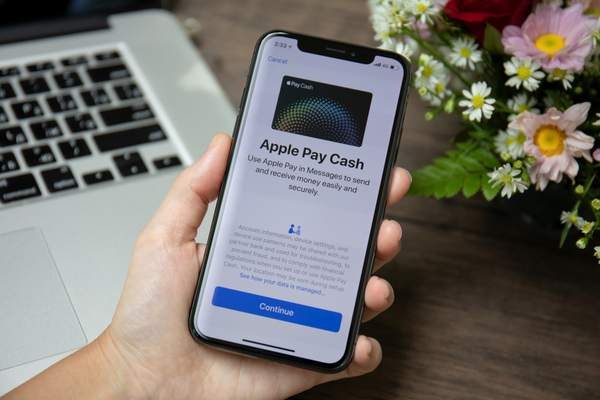
Covid-19 has changed our relationship with money. What does it mean for business?
Australians are embracing the digital banking revolution at a faster rate and with more enthusiasm than ever before. Businesses must keep up.
By Jim Vass.
When the threat of coronavirus hit earlier this year, there were two components around avoiding the public transmission of germs, which have sped up the digital banking revolution.
Firstly, most of the retailers immediately signaled a preference for ‘contactless’ payments over cash. People used to paying with cash had to change their mindset pretty quickly and pull out the cards.
Secondly, people who aren’t usually big users of technology were kind of forced to embrace it when they were at home for weeks on end, and had to find new ways to connect with the world – to shop, work, and socialise. The evidence suggests that they also embraced new apps (like Uber Eats) and phone technology too.

Speeding up the digital banking revolution
Research shows that ATM usage in recent months has plunged by about 40 per cent in volume compared with last year, while bank branch traffic fell about 50 per cent from February to April. Many ATMs and branches were closed over the period so this fact would impact those numbers.
But the figures for contactless payments back up the trend. They are up about 65 per cent in value. The usage of payment by phone or by app is definitely on the increase.
Banking experts say that developments over the past 10 or so weeks have sped up the digital banking revolution by about five years. They’re also predicting that this could be a permanent behaviour change for consumers, meaning that we’ll be doing away with cash sooner rather than later.
The Federal Government and the ATO would undoubtedly support this. Although cash is still legal tender, people are using it less and less, and in recent years the Government has been providing extra funding and resources to the ATO to crack down on the use of cash in business, with the aim of eradicating the cash economy which costs Australia billions of dollars every year.
Businesses need to prepare
All of this means that businesses need to ensure they’re preparing for the transition to a cashless system. And for professional service industries like accountants, tax advisors, gyms and doctors to name a few, it will be relatively simple.
However, perhaps not so easy for the newsagents and the fruit and veggie shop owners – those businesses which deal in low-value one-off transactions that are mostly paid for in cash, like a newspaper or a birthday card, a couple of apples and a banana. These businesses need to start thinking about what might come next, and many may already be heading down that path now, after the coronavirus experience.
Weekend market stall holders and ‘pop up’ retailers have been under increasing pressure from customers for some time to have electronic payment facilities or risk losing sales. Many charities are now being forced to think outside the square too, to ensure that fundraising is still possible in the face of donors who no longer carry around cash. And last year the RBA also introduced its new platform, a real-time payments system which uses an identifier such as a mobile number or email address. This New Payments Platform (NPP) is making peer-to-peer payments even easier, from splitting a restaurant bill 10 ways, to paying a babysitter, to buying a car without cash.
If Covid-19 has shown us anything it is that preparation is the key to surviving change. While none of us could have predicted the virus, those businesses that could adapt quickly, suffered minimal downtime and fared better overall.
Covid-19 has also shown us that Australians are pretty compliant. They can, and will, adjust to new conditions.

Cost must not be a prohibitor of change
There are a lot of advantages in not dealing with cash – it’s safer and more secure and it makes accounting easier.
The one thing businesses must do though, is ensure that they have a range of payment options available, A must too, is stable internet technology so that payments aren’t interrupted.
Do you have a contingency plan? There have been times in recent years when entire banks have gone off line. Woolworths too, experienced a tech outage that shut down it’s checkout and payments systems a couple of years ago. Some stores had to close for the whole afternoon, which meant people left their full trolleys in situ and marched up the road to Coles or Aldi instead. These are real issues that need addressing.
While for some businesses the cost of going cashless will be significant, it shouldn’t be prohibitive. This is the way of the future. And by all accounts, it will happen sooner than we originally expected.
If you need help around business planning, download our free e-Book to help you take control of your business, or give us a call.
